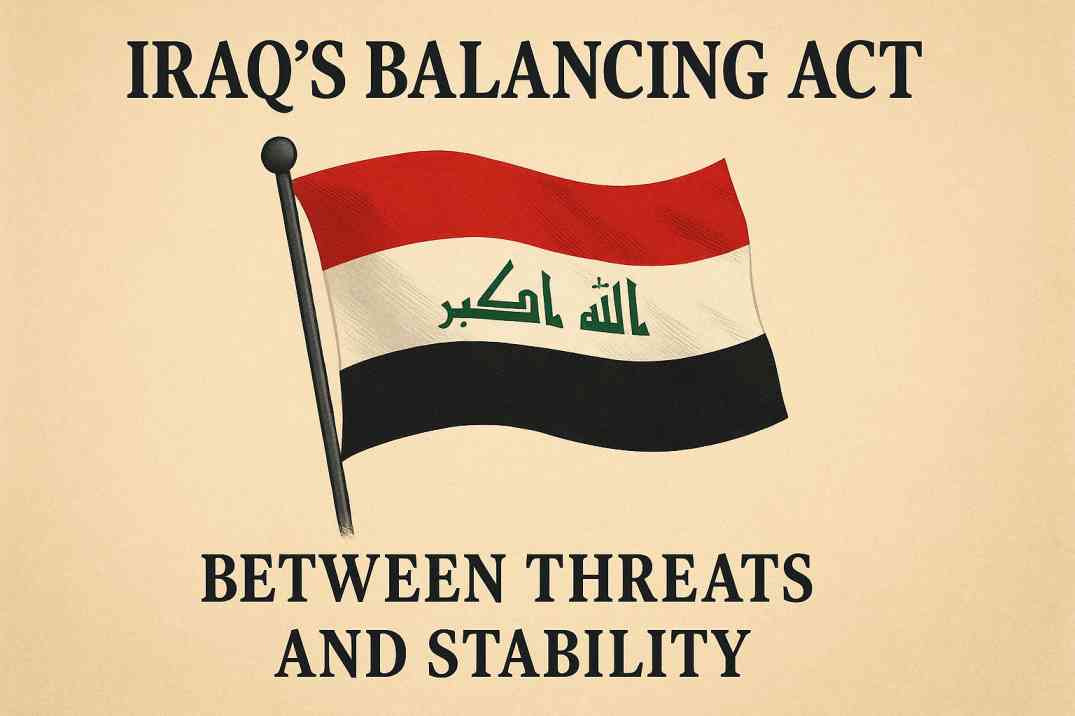Reading time : 1 minutes
West Asia is again on edge, with Iraq drawn into regional turbulence after Israeli Prime Minister Benjamin Netanyahu’s speech at the United Nations on September 26. In his address, Netanyahu threatened resistance groups operating in Iraq, suggesting they would face Israeli action. Iraqi Foreign Minister Fuad Hussein swiftly condemned the remarks as “unacceptable,” warning that any strike on an Iraqi citizen would be treated as an attack on the entire nation.
Independent Iraqi politician Abu Miithaq al-Masar dismissed Netanyahu’s threats as a sign of weakness, pointing out that Israel has failed to achieve decisive victories in Gaza or secure hostage releases. He warned that any attack on Iraq would drag Israel into another costly conflict.
Political Responses and Regional Dynamics
Ammar al-Azzawi of Iraq’s Sovereignty Alliance argued that Netanyahu’s rhetoric would not have surfaced without Western backing. He claimed that Israel’s prime minister, weakened by internal and international criticism, was trying to divert attention from his failures. Al-Azzawi added that Iraq has become a key part of the regional resistance axis, and Netanyahu’s threats have only boosted the popularity of Iraqi factions ahead of upcoming elections.
Political observers believe an Israeli military confrontation with Iraq remains unlikely. Analyst A’ed al-Hilali noted that current stability depends on informal understandings between Baghdad, the resistance factions, and Washington—arrangements supported by global concerns over oil markets and foreign investment in Iraq.
The Debate Over Disarming Factions
Disarming Iraq’s resistance factions remains one of the country’s most divisive political issues. Under US pressure to reduce Iranian influence, Washington has labeled four major Iraqi groups as terrorist organizations. But many Iraqi politicians view these efforts as symbolic rather than practical. Al-Azzawi argued that Israel’s attempts to weaken Iraqi groups date back decades, saying that disarming a few factions would not change the country’s broad rejection of Israeli policies. Political analyst Hussein al-Kinani added that the US was forced to adapt to Iraq’s realities because continued confrontation risked its own interests. He warned that any forced disarmament could spark internal unrest, recalling the destructive consequences of past US operations in Iraqi cities.
Border Pressures from Syria
Alongside political tensions, Iraq faces growing threats from its Syrian border, where armed groups backed by both the US and Israel remain active. Baghdad has adopted a cautious diplomatic approach, acting as a mediator between Iran and Washington to prevent escalation. The al-Hawl camp in northeastern Syria continues to worry Iraqi officials. Housing thousands of ISIS fighters and their families, the camp remains under the control of the Syrian Democratic Forces and is seen as a persistent source of instability. US Central Command has called for repatriating foreign detainees to curb the risk of ISIS resurgence, but international reluctance has stalled progress.
Iraq’s Fragile Stability
For now, Iraq’s stability rests on careful diplomacy and internal balance. Netanyahu’s threats are widely seen as political theater, constrained by Iraq’s strategic importance to global oil supplies and the broader regional balance. Yet the challenges are real: resistance disarmament remains politically impossible, and border security is a constant concern.

